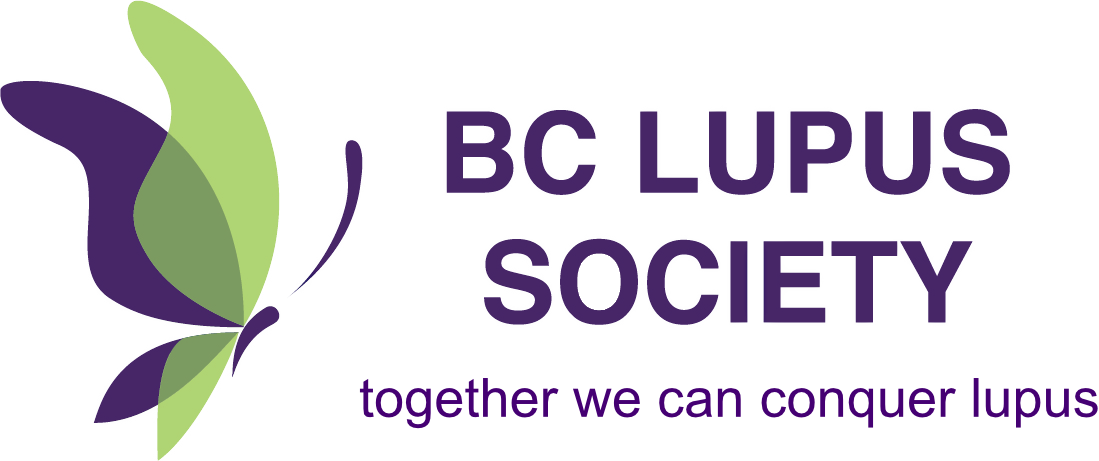About Us
What do we do?
Empowering individuals living with lupus through support, education, research, and community.
The BC Lupus Society has been supporting and advocating for people living with lupus for nearly five decades:
1977 – A group of lupus patients, with the support of three rheumatologists, formed a support group known as the Lupus Erythematosus Group (L.E.G.).
1980 – With a growing membership and expanding representation across the province, the name was changed to the B.C. Lupus Association.
1993 – The group became an official non-profit society under the Society Act and adopted the name B.C. Lupus Society.
2007 – The Society celebrated 30 years of working together to conquer lupus.
Today – The BC Lupus Society continues to provide education, advocacy, research funding, and peer support, while raising awareness of lupus across British Columbia. Our mission remains the same: to empower people living with lupus and to build a stronger, more informed community.
Our History
Who we are
The BC Lupus Society is the only organization in British Columbia dedicated solely to lupus education, support, and advocacy. We are committed to advancing research and providing hope for all those affected by lupus.
With members across the province, throughout Canada, and internationally—as far away as Singapore and Hong Kong—we are proud to serve a truly global community. Our network includes 8 support groups and 33 provincial contacts, connecting thousands of people touched by lupus.
Through this network, the Society:
Supports and assists the development of local support groups.
Provides access to up-to-date information and resources on lupus and coping with chronic illness.
Hosts educational meetings and seminars featuring medical experts and professional resource people to share the latest in research and treatment.
Our dedicated volunteers are at the heart of our success. Support group leaders, provincial contacts, and chapters offer direct support within their communities, lead public awareness campaigns, and organize fundraising initiatives. Additional volunteers generously contribute their time and skills to ongoing programs and special projects.
The Society is governed by a volunteer Board of Directors of up to ten members, elected annually at the AGM. The Board’s work includes:
Assessing the needs of the lupus community.
Developing programs and services to meet those needs.
Leading fundraising and grant-seeking efforts.
Advocating with government and collaborating with the medical community.
Supporting national initiatives and connecting with lupus organizations worldwide.
Together, we remain focused on improving lives, raising awareness, and moving closer to a world without lupus.
BC Lupus Society Executive & Board of Directors
2025
Executive Director: Ivana Cecic, Ph.D.
President: Samuel Cochrane
Treasurer: Dilshad Aulakh
Board Member: Valerie Gosselin
Board Member: Catherine Backman, PhD, FCAOT
Grant Policy
From time to time the BC Lupus Society provides grant funds for various research projects related to Systemic Lupus Erythematosus and other forms of the Lupus disease.
Because we are a charitable organization and rely on the donations of our generous supporters, we believe that it is in our best interests, and the wish of our donors, to not attempt to match the indirect cost rates of government, various agencies, and educational institutions.
This policy helps to ensure that we meet our charitable purpose, including support of research efforts, with the backing and approval of our membership and donors.
Our priority for funding is for projects headed and carried out for the most part in British Columbia and alternatively the rest of Canada. We do not provide funding for projects based outside of Canada.
If you believe that your research project will be of interest to the society, please email a letter of introduction to info@bclupus.org attention President.
Indirect Costs definition (not limited to):
Overhead expenses or ongoing operational costs incurred by the applicant organization on behalf of the organization’s activities and projects, but that are not easily identified with any specific project.
Administrative or other expenses which are not directly allocable to a particular activity or project.
Expenses related to general operations of an organization that are shared among projects and/or functions.
Basic examples include executive oversight, existing facilities costs, accounting, grants management, legal expenses, utilities, and technology support.

